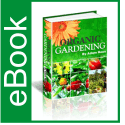Gardening Gloves
Gardening Gloves are protecting your skin
One of the best things about gardening is felling warm, moist dirt in your bare hands, but you will often end up with blistered, chapped, and scraped skin. The solution to this problem is gardening gloves. The more time you spend getting down and dirty in the garden, the more you need gardening gloves. Gardening gloves will be able to ease some of the pain you would otherwise be subject to, letting you spend even more time playing in the dirt.
There are hundreds of different types of gloves on the market, and the kind of gardening glove you buy depends on the way you garden. Some gloves offer protection against specific substances or things, for example, leather gloves are not the best for working with chemicals or water. Many gardening gloves are specialized for pruning thorns, refilling gasoline tanks, or using a chain saw, while others are for general tasks such as raking, digging, and weeding.
After choosing the type of gardening glove you need, you must make sure and pick out the perfect fit. Gloves that are too big have a tendency to slip off while gloves that are too small could cause aches and cramps. Any glove that doesn’t fit could defeat the whole purpose of wearing gloves and cause blistering. To find a glove with the best fit possible, try the gloves on both hands, make a fist, and imitate the movements you make when gardening. If there is no pinching or slipping and the glove is comfortable then you have found your match.
Gardening gloves can be bought in many places and are produced by many companies, causing them all to have a different quality and price. Most gloves can be washed in cool water and then air dried. There are many different types of gloves you can purchase to satisfy your varying needs, such as cotton and cotton-polyester for general-purpose chores. These are among the most popular gloves and are perfect for light chores in cool and dry weather. Leather gloves can also be used for general chores but are heavier than cotton and polyester. Chemical resistant gloves will help protect your hands against oils, acids, herbicides, pesticides, and many other chemicals. Grip enhancing gloves are designed with rubber dots for extra gripping power. Cut and puncture resistant gloves are designed to offer extra protection against sharp edges.
If you are the type person that only wears gloves as an optional luxury for various tasks, you should think seriously for using specialized gardening gloves for many of the activities you will be doing outside. There is really no reason not to wear gardening gloves; they protect your hands from the elements and don’t ever cost all that much.

 July 21, 2011
July 21, 2011 







